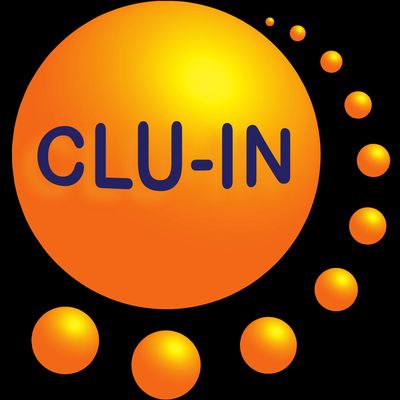Since 1998, The Contaminated Site Clean-Up Information (CLU-IN) website has presented Internet Seminars covering a wide variety of technical topics related to hazardous waste characterization, monitoring, and remediation. For select seminar topics offered since 2012, we are making complete video recordings available through our archives. This feed contains all video seminars archived in the last 12 months. For a complete list of seminars archived since 2000, please visit http://www.clu-in.org/live/archive/. Our Rehabilitation Act Notice for reasonable accommodation is available at http://www.clu-in.org/training/accommodation.cfm. CLU-IN was developed by the U.S. Environmental Protection Agency (EPA) but is intended as a forum for all waste remediation stakeholders. For more information and to view upcoming live offerings, please visit http://www.clu-in.org/live/. For a complete list of RSS feeds available on CLU-IN, please visit http://www.clu-in.org/rss/about/.
http://www.clu-in.org/live/archive
Gesamtlänge aller Episoden: 13 days 3 hours 21 minutes
Groundwater Statistics for Environmental Project Managers (Mar 7, 2019)
Statistical techniques may be used throughout the process of cleaning up contaminated groundwater. It is challenging for practitioners, who are not experts in statistics, to interpret, and use statistical techniques. ITRC developed the Technical and Regulatory Web-based Guidance on Groundwater Statistics and Monitoring Compliance (GSMC-1, 2013, http://www.itrcweb...
TPH Risk Evaluation at Petroleum-Contaminated Sites (Feb 21, 2019)
Remediation at petroleum release sites is often infeasible for technical or cost reasons. Many of these sites could be depleted in typical indicator compounds, such as BTEXN, but still heavily contaminated in terms of Total Petroleum Hydrocarbons (TPH)...
Quality Considerations for Multiple Aspects of Munitions Response Sites (Feb 21, 2019)
The Interstate Technology and Regulatory Council (ITRC) is excited to release an on-demand training video that provides a 30-minute introductory overview of ITRC's Quality Considerations for Multiple Aspects of Munitions Response Sites (QCMR-1, 2018) guidance document...
Military Munitions Support Services - MR-QAPP Module 1 RI/FS: How to Document Your Investigation and an Overview of Data Usability Assessment (Feb 20, 2019)
The Intergovernmental Data Quality Task Force (IDQTF) has developed the Munitions Response Quality Assurance Project Plan (MR-QAPP) Toolkit to assist project teams in planning for the characterization and remediation of buried munitions and explosives of concern (MEC) at Department of Defense (DoD) installations and formerly used defense sites (FUDS)...
Remediation Management of Complex Sites (Feb 19, 2019)
At some sites, complex site-specific conditions make it difficult to fully remediate environmental contamination. Both technical and nontechnical challenges can impede remediation and may prevent a site from achieving federal- and state-mandated regulatory cleanup goals within a reasonable time frame. For example, technical challenges may include geologic, hydrogeologic, geochemical, and contaminant-related conditions as well as large-scale or surface conditions...
Issues and Options in Human Health Risk Assessment - A Resource When Alternatives to Default Parameters and Scenarios are Proposed (Feb 7, 2019)
Many state and local regulatory agencies responsible for the cleanup of chemicals released to the environment have adopted regulations, guidance and policies that define default approaches, scenarios, and parameters as a starting point for risk assessment and the development of risk-based screening values...
Connecting the Science to Managing LNAPL Sites a 3 Part Series - Part 3 (Jan 29, 2019)
Connecting the Science to Managing LNAPL Sites ? 3-Part Series The newly updated LNAPLs (Light Non-Aqueous Phase Liquids) 3-part training course series is based on the ITRC guidance: LNAPL Site Management: LCSM Evolution, Decision Process, and Remedial Technologies (LNAPL-3, 2018) and focuses on connecting the science to managing LNAPL sites and helping you: Build upon your Understanding of LNAPL Behavior in the Subsurface (Part 1) Develop your LNAPL Conceptual Site Model and LNAPL Remedial...
Connecting the Science to Managing LNAPL Sites a 3 Part Series - Part 2 (Jan 22, 2019)
Connecting the Science to Managing LNAPL Sites ? 3-Part Series The newly updated LNAPLs (Light Non-Aqueous Phase Liquids) 3-part training course series is based on the ITRC guidance: LNAPL Site Management: LCSM Evolution, Decision Process, and Remedial Technologies (LNAPL-3, 2018) and focuses on connecting the science to managing LNAPL sites and helping you: Build upon your Understanding of LNAPL Behavior in the Subsurface (Part 1) Develop your LNAPL Conceptual Site Model and LNAPL Remedial...
Geospatial Analysis for Optimization at Environmental Sites (Jan 10, 2019)
Optimization activities can improve performance, increase monitoring efficiency, and support contaminated site decisions. Project managers can use geospatial analysis for evaluation of optimization opportunities. Unlike traditional statistical analysis, geospatial methods incorporate the spatial and temporal dependence between nearby data points, which is an important feature of almost all data collected as part of an environmental investigation...
Connecting the Science to Managing LNAPL Sites a 3 Part Series - Part 1 (Jan 8, 2019)
Connecting the Science to Managing LNAPL Sites ? 3-Part Series The newly updated LNAPLs (Light Non-Aqueous Phase Liquids) 3-part training course series is based on the ITRC guidance: LNAPL Site Management: LCSM Evolution, Decision Process, and Remedial Technologies (LNAPL-3, 2018) and focuses on connecting the science to managing LNAPL sites and helping you: Build upon your Understanding of LNAPL Behavior in the Subsurface (Part 1) Develop your LNAPL Conceptual Site Model and LNAPL Remedial...
